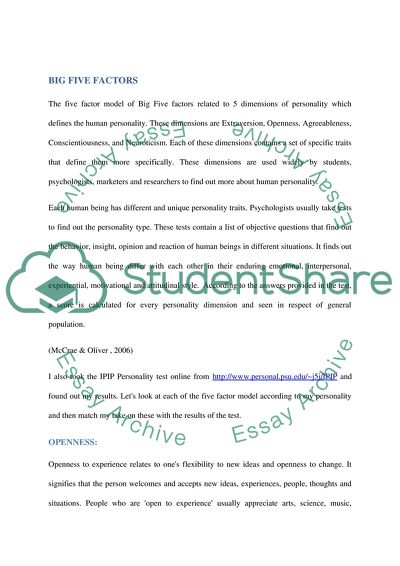Cite this document
(The Big 5 Factors and My Personality Assignment - 1, n.d.)
The Big 5 Factors and My Personality Assignment - 1. https://studentshare.org/psychology/1750958-describing-myself-in-terms-of-the-5-factor-model
The Big 5 Factors and My Personality Assignment - 1. https://studentshare.org/psychology/1750958-describing-myself-in-terms-of-the-5-factor-model
(The Big 5 Factors and My Personality Assignment - 1)
The Big 5 Factors and My Personality Assignment - 1. https://studentshare.org/psychology/1750958-describing-myself-in-terms-of-the-5-factor-model.
The Big 5 Factors and My Personality Assignment - 1. https://studentshare.org/psychology/1750958-describing-myself-in-terms-of-the-5-factor-model.
“The Big 5 Factors and My Personality Assignment - 1”. https://studentshare.org/psychology/1750958-describing-myself-in-terms-of-the-5-factor-model.


